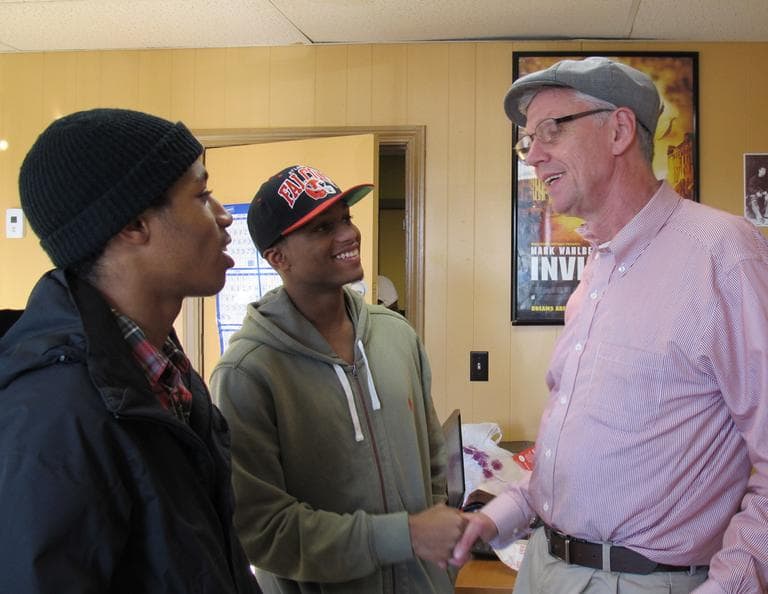Advertisement
Boston Braces For Inmates Released In Drug Lab Scandal
ResumeSpecial court sessions started this week in Boston to review hundreds of drug-related convictions that were based on evidence that may have been tainted by so-called "rogue chemist" Annie Dookhan.
The city is expecting 600 convicts to have their sentences suspended and eventually be released if they make bail. About two dozen have already gone through the process. Many community leaders are concerned they’re not prepared to help the influx of ex-convicts.
"Many of them, the first place they are going to come to is right here," said Emmett Folgert, who runs the Dorchester Youth Collaborative, a drop-in center for teens who want to stay out of trouble.

"They get out of Dorchester court, they walk down the hill on Park Street and they come here even before they come home, the young ones I’m talking about," Folgert said. "Absolutely I'm willing to work with them."
Folgert predicts the majority of those released will gravitate toward violent crime hot spots in Boston.
"So many of these criminals, I haven’t seen the list yet, but I’ve been told not only have problem with drugs, but they have problems with violence and gang problems," Folgert said.
Many of the convicts let out will be released on the condition that they submit to GPS monitoring and curfews. While some won't be retried, many will use other evidence in their cases. In the meantime, where are they going to live and work? They all have criminal records, which limit their options.
Community leaders say the new influx will burden existing reentry programs that are already overwhelmed with heavy caseloads and few resources.
"All it’s going to do now is just compound the problem we have," said Sadiki Kambon, who runs the Black Community Information Center in Boston. "Because we have a lot of young men and women out right here now unemployed, no jobs training."
To help handle what he is calling a "crisis," Boston Mayor Thomas Menino has set up extra reentry teams made up of police, probation officers and representatives from community groups. The city, police and prosecutors have all asked the state for more funding. Folgert, of the Dorchester Youth Collaborative, would like the Legislature to bolster Shannon Grants, which fund policing and community groups like his. Over the last few years those grants were cut by more than half, leaving the community safety net frayed.
Charmane Higgins, executive director of STRIVE, which gives ex-offenders job training and placement, says police funding is important.
"At the same time you have to give to organizations who are serving the community by helping these young men and women who are returning to society," Higgins said. "Help them get jobs because we know that without jobs you can’t get housing, you can’t get an education."
None of the teenagers I spoke with at the Dorchester Youth Collaborative had ever heard of Dookhan or the state drug lab scandal. When I tell them it could mean more convicts back in their neighborhood, 18-year-old Stephen Goss says he's not worried.
"I'm not about to judge somebody on what they did in their past. I’ll judge you on your character. If you want to be my friend after coming out of jail 10 years, I’m going to kick it with you," Goss said. "It’s really about character of the person. If the character of the person is not right, that’s what’s going to determine if we can be cool or not ... I’ve known plenty of people that been in jail."
His friend, Kurt Driggs, says these ex-inmates should stay out of trouble.
"That should like a second chance, like a wake-up call [that] you should change your life," Driggs said. "I don’t think you should come back out here and be on the same thing. That’s a second chance."
That’s what community agencies say they will also tell the newly released prisoners: Make the most of this second chance. Some will, some won’t. No matter what, community leaders expect to see ramifications for years to come.
This program aired on October 17, 2012.